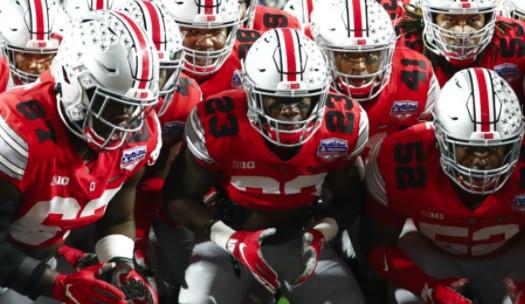Ohio State Prof Pens Hyperbolic Apology For His “Whiteness” After Suggesting College Football Could Unify The Nation
Tyler Durden
Fri, 10/02/2020 – 15:40
It’s the state of our country right now, sadly.
Last week, Ohio State professor Matthew Mayhew wrote an article called “Why America Needs College Football.” The article advocated for, you guessed it, a return to college football – arguing it would be good for the nation.
In his initial article, Mayhew wrote:
As college campuses attempt to find a new normal suitable for the COVID-19 realities, college athletics, especially college football, have garnered much attention. Debates continue about whether players should be required to play this fall season.
Although many people have been outspoken about the financial and health ramifications of allowing—or requiring—players to gear up, few, if any, have addressed the essential role that college football may play toward healing a democracy made more fragile by disease, racial unrest and a contested presidential election cycle.
“Essentializing college football might help get us through these uncharacteristically difficult times of great isolation, division and uncertainty. Indeed, college football holds a special bipartisan place in the American heart,” he said.
This week, Mayhew is writing a lengthy and possibly immensely hyperbolic apology for advocating for a sport that “places Black bodies at disproportional risk”.
“I recently led a piece in Inside Higher Ed titled ‘Why America Needs College Football.’ I am sorry for the hurt, sadness, frustration, fatigue, exhaustion and pain this article has caused anyone, but specifically Black students in the higher education community and beyond,” Mayhew wrote in a part two, published in Inside Higher Ed.
He continued, in an apology that was dripping with so much emotion that Reason suggested it could be satirical:
I learned that I could have titled the piece “Why America Needs Black Athletes.” I learned that Black men putting their bodies on the line for my enjoyment is inspired and maintained by my uninformed and disconnected whiteness and, as written in my previous article, positions student athletes as white property. I have learned that I placed the onus of responsibility for democratic healing on Black communities whose very lives are in danger every single day and that this notion of “democratic healing” is especially problematic since the Black community can’t benefit from ideals they can’t access. I have learned that words like “distraction” and “cheer” erase the present painful moments within the nation and especially the Black community.
He continues:
I am just beginning to understand how I have harmed communities of color with my words. I am learning that my words—my uninformed, careless words—often express an ideology wrought in whiteness and privilege. I am learning that my commitment to diversity has been performative, ignoring the pain the Black community and other communities of color have endured in this country. I am learning that I am not as knowledgeable as I thought I was, not as antiracist that thought I was, not as careful as I thought I was. For all of these, I sincerely apologize.
The New York Times, perhaps bewildered by whether or not Mayhew was being serious and confused as to what, exactly to be offended by the most, then came out and publicly criticized the apology, noting that “such a dramatic public apology is obviously weird and bad.”
“The obsequious tone of the groveling should be a red flag that there’s something seriously awry with this mode of discussion,” the Times wrote.
via ZeroHedge News https://ift.tt/3ndygYA Tyler Durden
